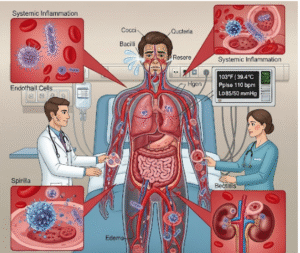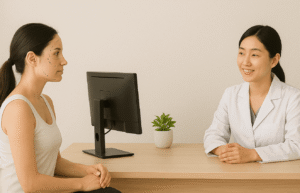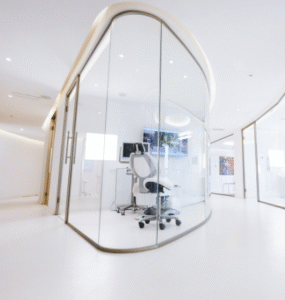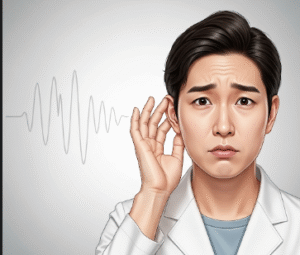Mental health awareness is gaining momentum across South Korea as both the government and communities take bold steps to address issues of depression, anxiety, and social isolation. With suicide rates among the highest in the OECD and growing mental strain among young adults, Korea is launching new nationwide initiatives that focus on prevention, accessibility, and de-stigmatization.
The Growing Importance of Mental Health in Korea
In recent years, mental health has shifted from a private concern to a public conversation. Factors such as academic pressure, work-related stress, economic uncertainty, and digital isolation have contributed to widespread emotional fatigue, especially among younger generations. The COVID-19 pandemic further intensified awareness of psychological health, prompting Korea to redefine mental wellness as a national priority.
The Korean government now frames mental health as part of its public health mission—an essential component of well-being alongside physical health. This shift has led to the launch of multiple new campaigns, community programs, and digital initiatives designed to make support easier to access and less stigmatized.
Key Campaigns and Initiatives
➤ Biennial Mental Health Checkups for Young Adults
Starting in 2025, Korea introduced mandatory mental health checkups every two years for citizens aged 20 to 34. These screenings help detect early signs of depression, anxiety, and bipolar disorders. The goal is to identify and treat mental health issues before they become severe. If successful, the program will expand to other age groups by 2027.
➤ Counseling Voucher Program
To improve access to professional care, the government launched a counseling voucher system that provides financial support for people experiencing mental distress. Patients can use these vouchers to pay for therapy sessions or psychological assessments at registered institutions. The long-term goal is to reach one million beneficiaries within the next two years, ensuring that cost is no longer a barrier to mental health support.
➤ Youth and Media Campaigns: “Mind Playlist” and “Deep in the Mind”
UNICEF Korea has introduced creative campaigns targeting adolescents. “Mind Playlist” invites young people to share songs that bring them comfort, fostering conversations about emotions through music. Another project, “Deep in the Mind,” turns youth mental health stories into art installations—offering a space where young voices can be heard without stigma. These projects use art and culture to help normalize emotional expression among teenagers.
➤ Community-Based Events and Walks
Local and international organizations in Korea are promoting mental health awareness walks and community gatherings to encourage open discussions about emotional well-being. These events often take place in parks or along rivers, symbolizing movement, renewal, and shared strength. They help transform mental health into a topic of connection rather than shame.
➤ “Mind Convenience Stores” in Seoul
One of the most innovative approaches has been the creation of “mind convenience stores” — safe, casual spaces where people can rest, talk, or participate in relaxation activities. These centers are designed to look like typical convenience stores, but instead of snacks, they offer comfort, quiet zones, and optional counseling sessions. The familiar environment helps reduce anxiety about seeking professional help and encourages people to drop by without fear of being judged.
Impact of the Campaigns
These campaigns are already having visible effects:
➡️ Normalization of mental health discussions – Social media and schools now feature more open dialogue about mental wellness.
➡️ Early detection and prevention – Regular screenings and counseling vouchers are making it easier to identify problems early.
➡️ Youth engagement – Music, art, and digital storytelling are helping younger people express their struggles more freely.
➡️ Community participation – Public events and spaces have created safe, non-clinical environments for healing and connection.
By combining creativity, accessibility, and empathy, Korea’s campaigns are shifting the cultural perception of mental health from something shameful to something human and shared.
Ongoing Challenges
Despite progress, significant challenges remain:
➡️ Shortage of trained professionals – As demand grows, the number of qualified counselors and psychologists still lags behind.
➡️ Regional inequality – Rural areas often have limited access to mental health centers compared to Seoul.
➡️ Social stigma – Some Koreans continue to view mental illness as a personal weakness rather than a medical issue.
➡️ Sustained care gaps – Screening helps with early detection, but consistent long-term therapy is still underdeveloped.
Addressing these gaps will be critical if Korea is to sustain its progress. The government is planning further expansion of mental health centers and digital support platforms to ensure continuity of care.
The Road Ahead
The next stage of Korea’s mental health movement will focus on integration and inclusivity. Future goals include expanding screenings to all age groups, increasing mental health education in schools, and embedding mental wellness support in workplaces.
Digital tools such as AI-based counseling chatbots and teletherapy platforms are also expected to grow, making care accessible to people who may hesitate to visit clinics in person. Collaboration between public health agencies, educators, and private healthcare providers will help create a more comprehensive system of care.
Mental Health Awareness Week in Korea now symbolizes more than a calendar event—it marks a cultural turning point. Through innovation, openness, and compassion, Korea is proving that mental wellness can become a shared national value. As these campaigns continue to evolve, the country’s commitment to emotional well-being could serve as a model for other nations seeking to balance tradition, technology, and care in their approach to mental health.













